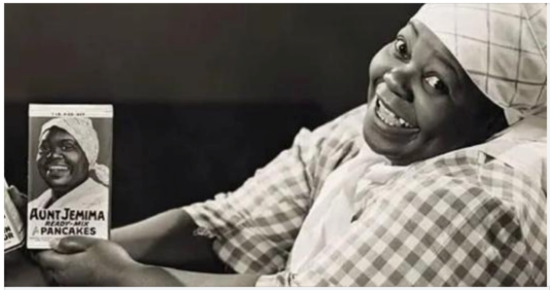Aunt Jemima’s great-grandson angry that her legacy is being scrapped: “It’s injustice to my family”
Preserving History and Acknowledging Injustice
When Quaker Oats announced their decision to discontinue the “Aunt Jemima” brand in response to the Black Lives Matter movement, it sparked a significant reaction. However, the great-grandson of “Aunt Jemima” disagreed with this choice, expressing concern that it would erase black history and the struggles that came with it. Larnell Evans Sr., a Marine Corps veteran, described the decision as an injustice to his family, highlighting the long-standing connection to their heritage.

He expressed his frustration, stating, “The racism they talk about, using images from slavery, that comes from the other side — white people. This company profits off images of our slavery. And their answer is to erase my great-grandmother’s history. A black female. … It hurts.”
The brand features an emblem of Nancy Green, a black woman who was once enslaved. Quaker Oats referred to Green as a “storyteller, cook, and missionary worker,” downplaying her experiences as a slave. Nonetheless, the company plans to permanently remove the brand.
The “Aunt Jemima” brand name originated when Anna Short Harrington was contracted to serve pancakes at the Chicago World’s Fair in 1893. Quaker Oats later designated her as “Aunt Jemima” after her passing in 1923. Larnell Evans Sr. claims that Anna Short Harrington was his great-grandmother, and she continued in the role until 1935.
Evans shared, “She worked for that Quaker Oats for 20 years. She traveled all the way around the United States and Canada making pancakes as Aunt Jemima for them. This woman served all those people, and it was after slavery. She worked as Aunt Jemima. That was her job. … How do you think I feel as a black man sitting here telling you about my family history they’re trying to erase?”
Evans is dismayed that the company was able to profit from a racial stereotype for so long before abruptly deciding to remove the name. He questions why corporations, primarily white-owned, earned substantial profits without providing any compensation to his family.

He passionately asks, “How many white people were raised looking at characters like Aunt Jemima at breakfast every morning? How many white corporations made all the profits, and didn’t give us a dime? They’re just going to erase history like it didn’t happen? … They’re not going to give us anything? What gives them the right?”
The decision around the “Aunt Jemima” brand has sparked intense debate. We would like to hear your thoughts on this matter. Please share your opinions in the comment section below. And if you support the Black Lives Matter movement and what it represents, feel free to share this article on Facebook to raise awareness.



